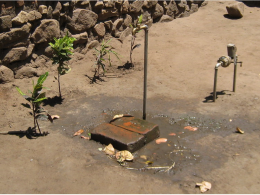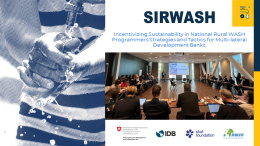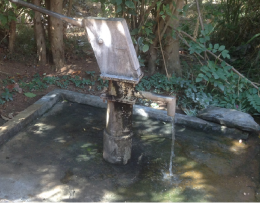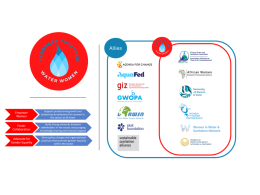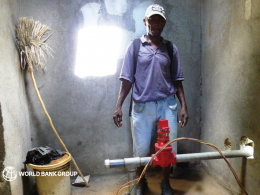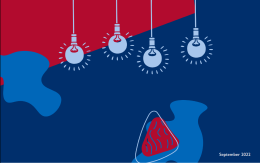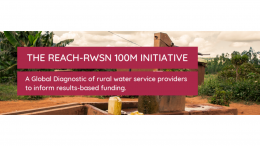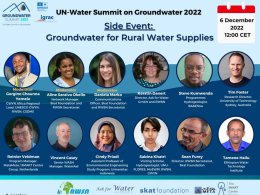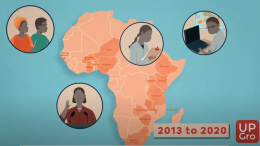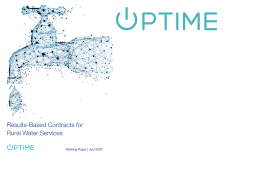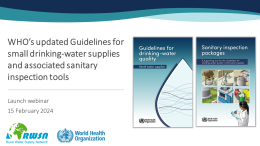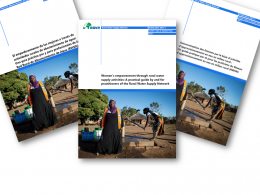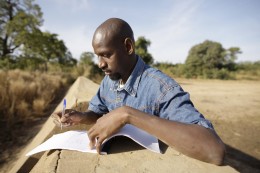Highlights of RWSN's projects, partnerships and knowledge products
Collaborations
Safe Water: monitoring, data and decisions
Une eau potable gérée en toute sécurité: surveillance, données, décisions
Project start: 2019 • Project finished: -
Collaborators: University of North Carolina, RWSN
Funder:
Summary
New partnership between RWSN and The Water Institute of UNCNouveau partenariat entre RWSN et le Water Institute à UNC Chapel Hill
We are excited to announce a new partnership between RWSN and The Water Institute at UNC Chapel Hill. This partnership will leverage the RWSN platform and The Water Institute’s expertise in water quality and management to bring up-to-date evidence and methods to the members of the network. As a new Topic Leader in Mapping and Monitoring,
The Water Institute aims to bring evidence and practice closer by facilitating lively discussion and producing practical guidance on Safely Managed Water. The new partnership will begin in 2019, so look out for The Water Institute’s new weekly Mapping Monday posts in the RWSN Mapping and Monitoring online community in the New Year!
Nous sommes ravis d'annoncer un nouveau partenariat entre RWSN et le Water Institute à UNC Chapel Hill. Ce partenariat s’appuiera sur la plateforme RWSN et sur l’expertise du Water Institute en matière de qualité et de gestion de l’eau pour apporter des données et des méthodes scientifiques de pointe aux membres du réseau. En tant que nouveau responsable du Thème cartographie et de surveillance, The Water Institute a pour objectif de rapprocher la science et les pratique en facilitant une discussion animée et en produisant des conseils pratiques sur une eau gérée de manière sûre. Le nouveau partenariat débutera en 2019, alors ne manquez pas les nouveaux articles hebdomadaires intitulés Mapping Monday du Water Institute dans la communauté en ligne RWSN dédiée à la cartographie et au suivi !
SIRWASH: Sustainable and Innovative Rural Water, Sanitation and Hygiene
Servicios sostenibles e innovadores de Agua, Saneamiento e Higiene en zonas rurales – SIRWASH
Project start: 2020 • Project finished: 2024
Collaborators: IDB, SuSanA
Funder: SDC
Summary
The general objective of the SIRWASH programme is to improve enabling policy, innovation and knowledge exchange environments and to foster the necessary capacities to deliver quality WASH services to rural communities with a particular focus on vulnerable and disadvantaged people.In 2023, RWSN is collaborating with the Inter American Development Bank (IDB) and the Sustainable Sanitation Alliance (SuSanA) to share good practices an experiences within Latin America and the Caribbean (LAC) and encourage South-South exchange on rural WASH with practitioners in Africa and Asia.
Join us for the #SIRWASH Webinar 1: Regional and National Monitoring of Rural WASH
Mark your calendars for October 4, 2023, at 16:00 (CEST) / 10:00 (EST) / 14:00 (GMT)
This is the first event of the webinar series of the SIRWASH Programme (Sustainable and Innovative Rural Water, Sanitation and Hygiene)
The event will be multilingual, with simultaneous translation into EN, FR, PT, and SP.
We will be joined by an esteemed lineup of partners and organizations:
-Inter-American Development Bank with the support of Swiss Agency for Development and Cooperation
-Asian Development Bank (ADB)
-African Development Bank Group
-Water For People
-RWSN - Rural Water Supply Network / Skat Foundation
Stop the Rot!
A project in action research and catalysing action to ensure the quality of water lifting technologies for drinking water in sub–Saharan Africa.
Project start: 2021 • Project finished: 2022
Collaborators: Ask for Water GmbH, Skat Foundation
Funder: Waterloo Foundation
Summary
The Challenge1) Premature corrosion and failure of water supply hardware, such as handpumps, is widespread across Sub-Saharan Africa, but evidence is limited and largely anecdotal.
2) For tens of millions of Africans who depend on handpumps for their daily water needs, these failures threaten their health and livelihoods.
3) Despite millions of dollars wasted on poor quality hardware, there seems to be a lack of interest among key international donors and other development partners that fund rural water supply services to engage in the problem of variable handpump quality.
This new RWSN initiative by Skat Foundation and Ask for Water GmbH strives to find ways in which key stakeholders can ensure that handpump technologies and spare parts that are installed for drinking water in sub-Saharan Africa are consistently of high quality and can last
Stronger Together! Coalition
Water Women
Project start: • Project finished:
Collaborators:
Funder:
Summary
Water and WomenAchieving Sustainable Development Goal (SDG) 6 for Clean Water and Sanitation, as well as SDG 5 on Gender Equality needs a holistic and systematic approach. This includes understanding the workforce behind the water resources and WASH systems sector, as skill shortages continue to affect the lack of progress on these SDGs. Data reveals that women only make up 21% of jobs in water utilities (1) and are under-represented in terms of participation at all levels in the sector (2). Visible and invisible barriers continue to hinder women to engage, develop, and fulfill their careers. This means that not all potential contributors are engaged, which leads to negative impacts, such as missing out on diverse thinking, creative solutions, and the improvement of overall sector performance. Therefore, it is necessary to advocate and work towards a strong, gender-equitable sector for water resources and WASH systems.
(1) World Bank Water Data
(2) Taking Stock of Progress Towards Gender Equality in the Water Domain (2021)
Sustainability Assessment of Rural Water Service Delivery Models
Findings of a Multi-Country Review
Project start: 2016 • Project finished: 2017
Collaborators: The World Bank, Aguaconsult, IRC
Funder: The World Bank
Summary
Failure by governments and development partners to ensure sustained access to basic water supplies in rural areas is, to a large extent, the result of inadequate investment to deliver infrastructure where needed. It is also the result of a failure to ensure that infrastructure, once in place, continues to effectively provide the expected services over time.Impressive gains from the Millennium Development Goal (MDG) era remain fragile and at risk, with various empirical studies indicating that 30 percent to 40 percent of rural water infrastructure is not functioning or functions below expected service levels (RWSN 2010).
Technological Innovations for Rural Water Supply in Low-resource Settings
CHALLENGES OF RURAL WATER SUPPLY
Project start: • Project finished:
Collaborators: Aquaya Institute, Aguaconsult, ATREE, KNUST, RWSN, Skat Foundation, Safe Water Network, Water Mission
Funder: USAID
Summary
Globally, the Sustainable Development Goals (2015–2030) are driving efforts to increase water service levels, while ensuring that services are affordable and no vulnerable population is left behind. In concert with global development goals, the United States Agency for International Development (USAID) Rural Evidence and Learning for Water (REAL-Water; 2021–2026) program focuses on identifying ways to expand water access and safety in rural areas of low- and middle-income countries. Rural areas pose special challenges for water supply, as homes may be too few or too dispersed to justify the cost of installing underground pipes from a high-quality water supply source or a centralized drinking water treatment facility. As of 2020, the majority of people lacking even basic water services (i.e., water from a protected source requiring no more than 30 minutes to collect) lived in rural areas.
Technology Applicability Framework (TAF) & Technology Introduction Process (TIP)
WASHtechnologies.net
Project start: 2011 • Project finished:
Collaborators: Skat Foundation, WaterAid, GIZ. The WASHTech consortium consisted of IRC WASH, WaterAid, Cranfield University, Skat Foundation, WSA, TREND, KNUST and NETWAS
Funder: Currently un-funded
Summary
The TAF is a tried-and-tested way of helping organisations improve their understanding of whether a technology that is designed to tackle a Water, Sanitation and Hygiene (WASH) problem will work in a particular context. This improved understanding can be used to support decisions on:1. Whether or not to invest or support the introduction of Technology X in Context Y
2. Whether or not to continue to invest, support or approve the introduction of Technology X in Context Y
3. Is Technology X ready to scale-up? And what are context-sensitive factors that may play a major role in the success or failure of widespread promotion and uptake?
Although the TAF was developed for WASH technologies, it can be used for any type of technology or product, and has been adapted by others for renewable energy technologies.
The REACH/RWSN 100 Million Initiative
A Global Diagnostic of rural water service providers to inform results-based funding
Project start: 2020 • Project finished: 2030
Collaborators: REACH; Uptime Consortium; University of Oxford; other partners
Funder: Foreign, Commonwealth and Development Office (FCDO)
Summary
Following the 100 Million Initiative global diagnostic study of rural water service providers, the RWSN-REACH 100 Million Initiative is proceeding to a second round of data collection, and inviting rural water service providers to submit a sample of service data from part of their operations for the period of one quarter of a year. This sample data will be used to identify rural water service providers who are able to provide sufficient data quality to participate in results-based funding arrangements that funders could establish. This process will also be used to help potential donors understand the size and scale of service providers who may be ready for results-based funding.
UN Groundwater Summit 2022
7-8 December 2022 | Pre-Summit events: 6 December 2022 UNESCO HQ in Paris, France
Project start: 2022 • Project finished: 2022
Collaborators: UN-Water
Funder:
Summary
The UN-Water Summit on Groundwater will be the culminating event of the 2022 campaign “Groundwater: making the invisible visible”, implemented by the dedicated UN-Water Task Force, co-coordinated by UNESCO and the International Groundwater Resources Assessment Centre (IGRAC), on behalf of UN-Water. The main messages from the Summit will be conveyed to the United Nations 2023 Water Conference.
UPGro – African Groundwater 2020
Final report from Unlocking the Potential for Groundwater for the Poor
Project start: 2013 • Project finished: 2020
Collaborators: Skat Foundation, Richard Carter & Associates + research teams from across Africa and Europe.
Funder: UK's Department for International Development (DFID), Natural Environment Research Council (NERC) and in principle the Economic and Social Research Council (ESRC)
Summary
Unlocking the Potential of Groundwater for the Poor (UPGro), was a seven-year international research programme (2013-2020) which was jointly funded by UK’s Department for International Development (DFID), Natural Environment Research Council (NERC) and the Economic and Social Research Council (ESRC).Nearly 200 of the world’s best researchers from more than 50 organisations across Africa and Europe were focused on improving the evidence base around groundwater availability and management in Sub-Saharan Africa. The goal has been to ensure that the hidden wealth of Africa’s aquifers benefit all citizens and the poorest in particular. UPGro projects have been interdisciplinary, linking the social and natural sciences to address this challenge
Uptime: Delivering Reliability for 100 Million People by 2030
Temps de fonctionnement : Garantir la fiabilité à 100 millions de personnes d'ici 2030
Project start: • Project finished:
Collaborators: FundiFix, Water for Good, Water Mission, UDUMA, Whave, Oxford University
Funder: GIZ, Osprey Foundation
Summary
Uptime is a global consortium working to deliver drinking water services to millions of rural people through long-term, performance-based funding to achieve Sustainable Development Goal 6.1.
WHO’s updated Guidelines for small drinking-water supplies and associated sanitary inspection tools
Launch: 15 February
Project start: 2024 • Project finished:
Collaborators: WHO, RWSN
Funder: WHO
Summary
#Webinar alert! World Health Organization and RWSN - Rural Water Supply Network will hold a global webinar on 15 February to launch WHO's updated Guidelines for drinking-water quality: small water supplies, and the associated Sanitary inspection packages – a supporting tool for the Guidelines for drinking water quality: small water supplies.These publications build on over 60 years of guidance by WHO on drinking-water quality and safety, and together update and supersede WHO’s 1997 guidance addressing the surveillance and control of community supplies. The new publications provide practical guidance for progressive improvements towards safe and sustainable drinking-water services for people served by the full diversity of small water supplies.
In this session, participants will gain awareness of key features of the Guidelines and tools, exchange with experts and practitioners on implementing the recommendations and guidance, and gain insights into upcoming efforts to further support implementation of the guidance.
Women’s empowerment through rural water supply / Autonomisation des femmes par le biais d’activités d'approvisionnement en eau en milieu rural
A practical guide / Un guide pratique / Una guía práctica
Project start: 2020 • Project finished:
Collaborators: RWSN Members from the Leave No-one Behind Community
Funder: SDC
Summary
This practical guide is the result of a consultation and co-creation process with members of the Rural Water Supply Network (RWSN). Engineers and gender experts have come together to overcome jargon barriers from their respective disciplines. This guide aims to pro-vide water specialists with the language and knowledge on how best to work with gender experts to build more transformative activities.Ce guide pratique est le fruit d'un processus de concertation et de cocréation avec les membres du réseau d’approvisionnement en eau en milieu rural (Rural Water Supply Network, RWSN). Des ingénieurs et des spécialistes des questions de genre se sont réunis pour faire tomber les barrières du jargon de leurs disciplines respectives. Ce guide a pour but d'apporter aux spécialistes de l'eau le langage et les connaissances sur la meilleure façon de travailler avec des spécialistes des questions de genre pour élaborer des activités plus transformatrices.
Esta guía práctica es el resultado de un proceso de consulta y de co-creación con miembros de la Red Rural de Abastecimiento de Agua (RWSN). Ingenieros y expertos en género se han unido para superar las barreras que supone la jerga de sus respectivas disciplinas. Esta guía tiene como objetivo proporcionar a los especialistas en agua el lenguaje y el conocimiento sobre la mejor manera de trabajar con expertos en género para construir actividades más transformadoras.
Writing Course for WASH Professionals
Skat, WaterAid, SHARE, Waterlines Journal
Project start: 2012 • Project finished: -
Collaborators: RWSN, Skat, WaterAid, SHARE, Waterlines Journal
Funder: SHARE
Summary
The ChallengeOver 2.5 billion have no access to improved sanitation and 780 million people lack access to improved sources of drinking water, according to the WHO/UNICEF Joint Monitoring Programme (2012). The numbers are staggering. The suffering is real. The challenge to overcome is immense. Success can only come through a combination of action and communication. Both are critical.
We have a vision where Water, Sanitation and Hy-giene (WASH) professionals are regularly sharing and learning – at all levels from districts to global networks. As a sector, we also need to reach out and communicate with wide range of audiences: politicians, policymakers, companies, water users, and the public in all countries.
We often have the content: experiences, data, pro-jects, methodologies and stories of success and failure. What we are often not great at is explaining ourselves to others in a way that leads to positive action.
We want to change that.
 Google Übersetzer
Google Übersetzer

